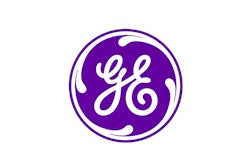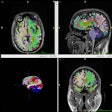Moving to expand its portfolio of AI-based MR image analysis offerings, GE HealthCare has inked a deal to acquire Belgium-based AI developer icometrix.
Icometrix offers AI software for analysis of neurological disorders such as Alzheimer’s disease and multiple sclerosis on MRI. In announcing the agreement, GEHC highlighted the benefits of the software for addressing the growing demand for MRI in personalized treatment planning.
To complement its MR-guided AI-assisted scanning technology with analysis and reporting in neurological disease assessment, GEHC said it expects to integrate the icometrix icobrain software platform with its MRI systems. Icobrain aria includes computer-aided detection and diagnosis software for detecting and quantifying known side effects of amyloid targeting therapies known as amyloid-related imaging abnormalities (ARIA).
“This effort marks a pivotal step in our journey to advance precision care in neurology,” said Roland Rott, president and CEO of Imaging at GEHC in a statement. “By integrating icometrix’s AI-powered insights with our advanced imaging technologies, we aim to empower care teams with the clarity and confidence needed to navigate complex neurological conditions.”
The acquisition of icometrix supports the company’s “goal to help clinicians deliver high-quality, timely care to meet this increased demand in MR technology,” said Kelly Londy, president and CEO of MRI at GEHC.
GEHC intends to focus on expanding availability to the icobrain aria software on all vendor MRI systems through both commercial distribution and clinical integration. The icobrain aria software identifies both forms of ARIA -- ARIA-E and ARIA-H from MR scans and performs longitudinal analysis of ARIA occurrence over time.
Icometrix was founded in 2011 and is based in Leuven. In addition to GEHC, Icometrix software also integrates with software platforms from companies including Siemens Healthineers, Nuance, Micron, Philips Healthcare, Guerbet, and DocPanel, according to the firm’s website. In addition, the American College of Radiology offers icometrix dm and aria software through its Alzheimer’s Network for Treatment and Diagnostics.
Icometrix founder and CEO Wim Van Hecke believes the acquisition will mark a new chapter in the evolution of AI-driven brain imaging.
“With GE HealthCare, we found a global company with the same vision of precision neurology and a true passion to impact people’s lives through innovation,” he said in a post on LinkedIn.
This new partnership will add a further layer of global scale, he continued. “Global scale to address health equity issues and make sure that all people get the best healthcare possible. Global scale to add precision care to drug development, drug launches, and real-world evidence. Global scale to support radiologists, neurologists, and hospitals globally with our neurology AI solutions.”
“Today marks a new chapter, but today is only the beginning,” he said. “We are ready to scale together with GE HealthCare. We are ready to make a global impact.”
Terms of the deal were not disclosed.
The Signify view
This move by GEHC is notable less as a surprise and more as a signal of where the imaging AI market is heading, Market Analyst Umar Ahmed of Signify Research told AuntMinnie on September 10.
"icometrix wasn’t vulnerable so much as reaching the limits of what an independent AI vendor can achieve without deeper integration," he said. "They’ve built strong clinical credibility (particularly with icobrain aria, which is uniquely positioned in the Alzheimer’s therapy monitoring space) and cultivated pharma partnerships. But commercial scale and workflow integration are where smaller companies often stall; GEHC, with its installed MRI base and emphasis on neurology, can take icobrain from niche adoption to global reach."
GEHC has been explicit about making neurology a growth pillar, according to Ahmed. "This fits a broader pattern: The OEMs that are in stronger financial and strategic positions are moving fastest to lock up differentiated AI capabilities."
The acquisition is part of a broader consolidation wave in radiology AI, according to Ahmed. "Standalone vendors with strong science but modest distribution increasingly face a binary choice: partner deeply, or be acquired. As MRI volumes rise with anti-amyloid therapy approvals, and as clinicians demand streamlined rather than fragmented workflows, the value shifts to those who can bundle AI seamlessly into hardware and software ecosystems."
Alzheimer’s disease care and MRI access vary widely across regions, he added. "Embedding icobrain into GE’s MRI ecosystem could help standardize ARIA detection globally; something far harder for icometrix to achieve alone. That could reduce variability in monitoring and treatment pathways across the U.S., Europe, and emerging markets."
"The battleground is no longer just about MR hardware; it is increasingly about integrated decision support. Rival moves into AI acquisitions for stroke, MS, or epilepsy would not be surprising," Ahmed stated.
This acquisition underscores a shift in how AI is valued in imaging, he pointed out. "The story is no longer about narrow algorithms; it’s about how AI can be embedded into clinical pathways (in this case, neurodegeneration and Alzheimer’s). GEHC is betting that controlling both the scanner and the downstream quantitative insights will give them a defensible edge in precision neurology. That’s arguably the most competitive frontier in imaging right now. Don’t overlook either the pharma consideration, pharma is investing in access to new digital biomarkers, so this also adds capability for GE (+ its customers)."
The deal feels almost inevitable, he said. "A natural next step as OEMs consolidate point-solution innovators to reinforce end-to-end platforms."



.fFmgij6Hin.png?auto=compress%2Cformat&fit=crop&h=100&q=70&w=100)





.fFmgij6Hin.png?auto=compress%2Cformat&fit=crop&h=167&q=70&w=250)











